What a High Ticket Appointment Setter Really Does
A high ticket appointment setter is a professional who specializes in connecting potential clients with businesses that offer premium products or services. Unlike standard appointment setters, their focus is on high-value prospects who are ready to make significant investments. These professionals play a crucial role in pre-qualifying leads, ensuring that sales closers spend their time only with prospects who are serious about purchasing. Their responsibilities include initiating conversations, building rapport, understanding prospects’ needs, and scheduling meetings with sales closers. This role demands not just administrative skills but also the ability to engage in persuasive, value-driven communication. High ticket setters often work closely with marketing and sales teams to streamline the lead funnel, making it more efficient and conversion-focused. Businesses that rely on high-value transactions, such as coaching, consulting, and software solutions, find this role indispensable for revenue growth.
The Value of High Ticket Appointment Setters in Business Growth
High ticket appointment setters are more than just schedulers—they are revenue multipliers. By qualifying leads, they prevent time wasted on prospects who are not aligned with the product or service offering. This allows closers to focus on prospects with the highest probability of converting, increasing both efficiency and sales performance. Businesses experience a faster return on marketing efforts when setters filter and nurture leads effectively. Additionally, a skilled setter can elevate the customer experience by providing personalized attention before the actual sales conversation begins. Their ability to build trust and credibility early in the buyer journey often leads to higher engagement rates. Companies that invest in high ticket appointment setters often notice improved lead conversion rates, increased client retention, and stronger overall business growth. In a competitive market, having setters who understand high-value client expectations gives companies a distinct advantage.
Core Skills Every High Ticket Appointment Setter Must Have
Effective high ticket appointment setters combine communication expertise with strategic thinking. Strong active listening skills are essential to identify client needs and objections accurately. Relationship-building capabilities allow setters to connect with prospects on a deeper level, instilling confidence and trust. They must also excel at lead qualification, ensuring that only serious buyers reach the closing stage. Understanding buyer psychology is crucial, especially in high ticket sales, where the investment decision often requires reassurance and clear value demonstration. Setters need confidence to handle rejection gracefully and persistence to follow up without being pushy. Additionally, they should be adept at using scripts flexibly, adapting their approach to each prospect while maintaining a natural and professional tone. Continuous skill development and familiarity with sales methodologies enhance their effectiveness over time.
Tools and Systems That Boost Performance for Setters
High ticket appointment setters rely on tools and systems to maximize efficiency and accuracy. Customer Relationship Management (CRM) platforms are vital for tracking leads, follow-ups, and communication history. Automated scheduling software helps reduce the back-and-forth between prospects and setters, saving time for both parties. Some setters use call recording and analytics tools to refine their scripts and approaches based on performance data. Email automation and personalized messaging can complement phone outreach, expanding the number of quality appointments set. Metrics such as appointments booked, lead conversion rates, and response times help setters and businesses measure success effectively. Adopting the right tools not only streamlines workflow but also increases the overall professionalism and consistency of the appointment-setting process.
How to Become a High Ticket Appointment Setter
Becoming a high ticket appointment setter involves a combination of training, practice, and networking. Various online programs and coaching courses teach the necessary skills for high-value sales engagement. Role-playing exercises and live practice calls help aspiring setters gain confidence in handling objections and qualifying leads. Hands-on experience, even through entry-level sales positions, provides valuable insights into buyer behavior and sales funnels. Networking with entrepreneurs, sales coaches, and other professionals opens doors to opportunities and mentorship. Learning the nuances of high ticket offers, such as premium coaching programs or enterprise software, helps setters speak confidently and persuasively. Consistent practice, feedback, and self-assessment are essential for refining communication and closing techniques.
Earning Potential and Career Path for High Ticket Appointment Setters
High ticket appointment setters have the potential to earn substantial income, often through a combination of base pay and commissions. Income levels vary depending on industry, experience, and performance metrics, but top setters can earn competitive salaries comparable to sales closers. Commission-only models are common, rewarding setters for each qualified appointment that leads to a sale. Experienced setters can transition into sales closers, account managers, or sales coaching roles, expanding career options and earning potential. Long-term growth often comes from mastering high-value sales strategies and consistently delivering results. Businesses appreciate setters who contribute directly to revenue growth, making this a highly rewarding career for motivated individuals. With dedication, setters can enjoy financial stability, career advancement, and professional recognition.
Why Businesses Invest in High Ticket Appointment Setters
Businesses invest in high ticket appointment setters because the ROI is substantial. Setters free closers from spending hours on unqualified leads, allowing them to focus on converting serious prospects. Companies that sell premium services or products often face longer sales cycles, and setters streamline this process by ensuring prospects are ready for the next step. Industries such as coaching, consulting, real estate, and enterprise solutions see particularly high returns from skilled setters. Setters also enhance the customer experience, providing informative and engaging interactions before a sale is made. By understanding the unique needs of high-value clients, setters increase the likelihood of conversion while reinforcing brand credibility. Investing in trained setters becomes a strategic business decision, driving both efficiency and profitability.
Common Challenges and How to Overcome Them
High ticket appointment setters face challenges that require resilience and strategic problem-solving. Handling frequent rejection can be discouraging, but maintaining a positive mindset and focusing on long-term results helps setters stay motivated. Balancing the quantity and quality of appointments is essential to avoid overloading sales teams with unqualified leads. Burnout is a risk, especially when managing multiple high-value prospects simultaneously, making time management and self-care critical. Continuous learning, role-playing, and feedback loops help setters refine their skills and stay effective. Managing objections and navigating complex buyer hesitations requires confidence and adaptability. Setters who embrace these challenges while consistently improving their approach can build a sustainable and rewarding career in high ticket sales.
Tips for Hiring the Right High Ticket Appointment Setter for Your Business
Hiring the right high ticket appointment setter starts with defining the skills and traits necessary for success. Look for individuals with strong communication abilities, persistence, and a professional demeanor. Interviews should assess not only experience but also the candidate’s ability to handle objections and build rapport quickly. Clear KPIs and expectations ensure that setters understand their role in the overall sales process. Onboarding programs that provide training on products, services, and sales techniques help new setters integrate efficiently. Monitoring performance and providing regular feedback encourages continuous improvement. Businesses that invest in the right setters often see a significant boost in qualified leads and overall sales performance.
FAQ
What is the difference between a sales closer and a high ticket appointment setter?
A high ticket appointment setter focuses on qualifying leads and scheduling meetings, while a sales closer handles the final sales conversation to secure the deal. Setters ensure closers only engage with serious prospects.
How much do high ticket appointment setters usually make?
Income varies by industry and experience, but setters can earn anywhere from a moderate base salary to high commissions per appointment that leads to a sale.
Do I need sales experience to become a high ticket appointment setter?
While prior sales experience helps, many setters start with strong communication skills, training, and practical role-playing to succeed in high ticket sales.
What industries benefit most from hiring high ticket appointment setters?
Coaching, consulting, enterprise software, real estate, and agency services are industries where setters can provide significant ROI.
Can high ticket appointment setters work remotely?
Yes, many setters work entirely remotely, using CRM tools, video calls, and automated scheduling systems to connect with prospects globally.











